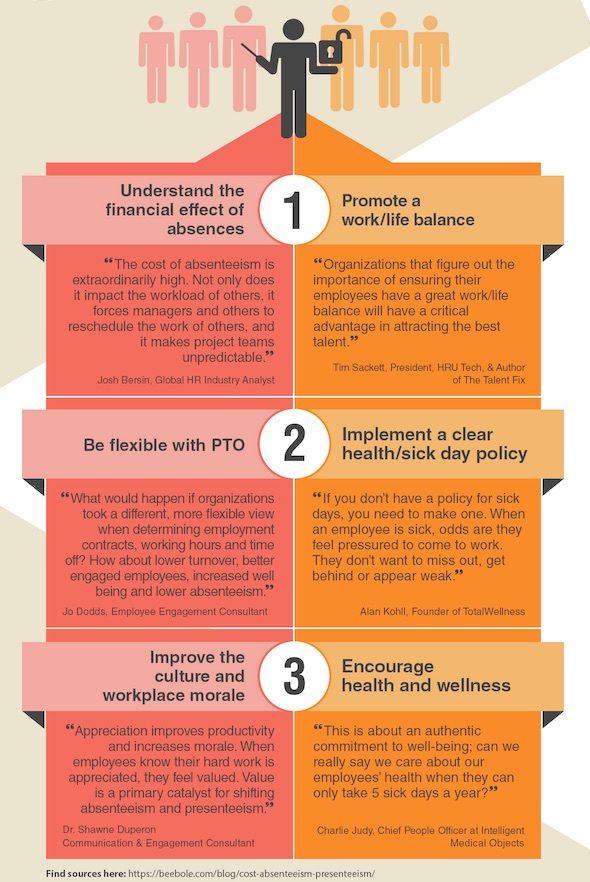Absenteeism and presenteeism are constant strains on the time of all organisations. The UK government says an estimated 141.4 million working days were lost because of sickness or injury in the UK in 2018, the equivalent to 4.4 days per worker. This is costing UK companies around £77.5 billion each year according to Vitality Health.
This was already cause for concern, but now with one in five UK employees potentially having to work from home due to coronavirus, even more so. The UK government released a four-step plan earlier this month, and if it reaches stage two, employers need to be prepared to allow employees to work from home.

When an employee is either absent from work due to disengagement or physical or mental illness, or is present at work but under-performing, it impacts organisations across the board. It lowers morale by increasing others’ workloads, forces meetings to be rescheduled and can even put projects at risk. It places added pressure on everybody’s time and is one of the biggest threats to productivity.
High absenteeism and presenteeism rates could make or break your business. And while there are no easy solutions, there are steps you can take to promote a workplace culture of flexibility and a healthy work/life balance. One of those tactics, which is especially helpful in fighting absenteeism, is a time tracking tool.
No matter your business size, time is your greatest commodity. It’s how you utilise your time—and the time of all of your employees—that determines efficiency, productivity, and ultimately success.
Today, many businesses throughout the UK are realising that implementing an easy and efficient time tracking system is no longer simply about clocking in and or clocking off. It’s about the type of business intelligence that data holds. Imagine knowing your employees’ absenteeism rate at a glance, or being able to pinpoint when they might be burning out. This opens the door for a very necessary conversation perhaps even before any serious issues have arisen. Not keeping track of this data or having the context to really understand what you’re seeing, are missed opportunities.
By implementing a cloud-based time tracking system, employers can ensure projects stay on track even if their teams are forced to start working remotely in the coming weeks as the country comes up against coronavirus.
“Employers should trust their employees are working, whether they’re in the office or not. The coronavirus is clearly going to have a huge impact on the UK workforce. If employers are truly worried about their team working remotely, employers can see how many hours were worked (and from where they were registered) if using a cloud-based time tracking system,”said: Yves Hiernaux, CEO of the time tracking tool BeeBole Timesheet. “Presenteeism and absenteeism are very much alive and well in today’s work culture, so remote or not, the real key is being able to measure productivity in other ways. Remote working is not the enemy.”
Yves Hiernaux explains: “By empowering your business with an effective time tracking system all aspects of your business are likely to improve, from efficiency and productivity to employee health and well-being. An effective time tracking system will not look the same for all companies, and needs to be fast, easy and flexible, enabling companies to track time daily, weekly, monthly and in real-time. It needs to be specifically designed for a company’s convenience, and provide management with a real insight into workers behaviours and performance.”


Leave A Comment
You must be logged in to post a comment.